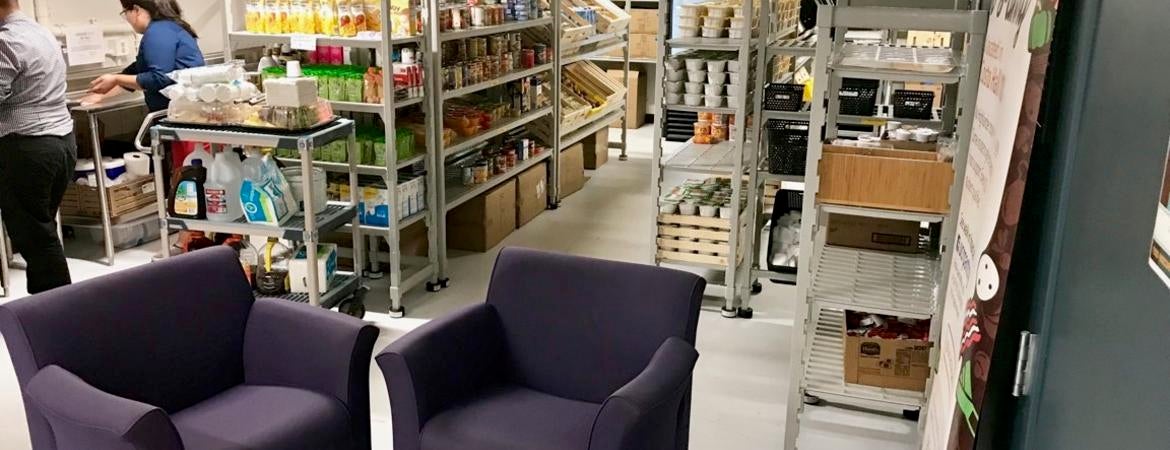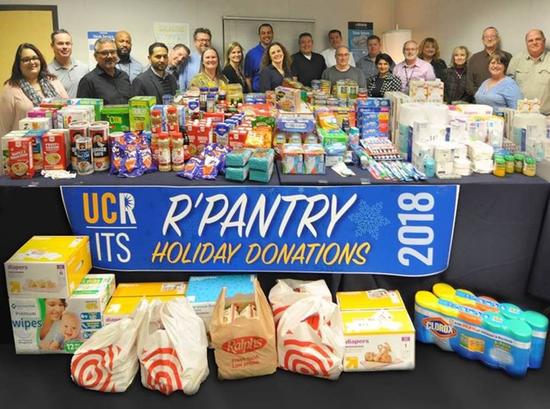R’Pantry is in better shape as it stocks up for the winter thanks to a successful food donation drive and fundraising effort.
The program, which provides food and hygiene products to students in need, completed its first formal donation drive earlier this month with 13 campus departments collecting a variety of goods.
The Giving Tuesday campaign in November also brought $9,500 in monetary donations – including one for $5,000.
“We’ve had a lot of support from campus,” said Devon Sakamoto, director of The WELL, which oversees the R’Pantry program at Costo Hall.
UC Riverside’s Information Technology Solutions department collected two tables loaded with more than 600 pantry items – the biggest contribution he’s seen since the pantry opened, said Daniel Lopez-Salas, Wellness Program coordinator. ITS staffers also donated $3,043.
The department, which holds an annual holiday drive for a charity, wanted to aid a group close to home this year and selected the pantry program, said Shelley Gupta, chief financial officer for ITS.
“My team really loved any opportunity to support the students,” she said.
The department set its new record; in previous years, it raised around $2,000 for charities.
Other departments that took part in the drive were:
- Student Life
- Counseling and Psychological Services
- UCR Extension’s Osher Lifelong Learning Institute
- Health and Psychological Student Services
- EMN administrative unit
- Academic Resource Center
- CARE
- Art History
- Undergraduate Admissions
- Registrar’s office
- Student Disability Resource Center
The pantry will be closed for winter break, but not before sending about 50 care packages to its highest-need students, said Lopez-Salas.
The pantry opened in 2014 to provide emergency food to students in need and has seen exponential growth in the students using its services. This past quarter, about 2,000 students used the pantry, which distributed about 5,000 pounds of food per week.
UC surveys found that 53 percent of undergraduates and 37 percent of graduate students are food insecure – meaning they have limited access to nutritious foods, Sakamoto said.





